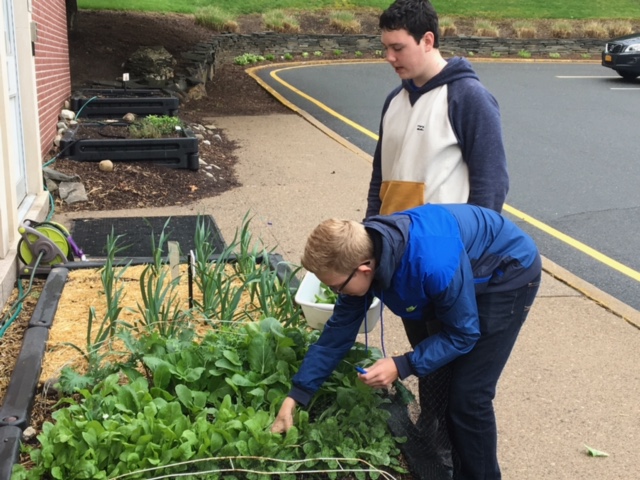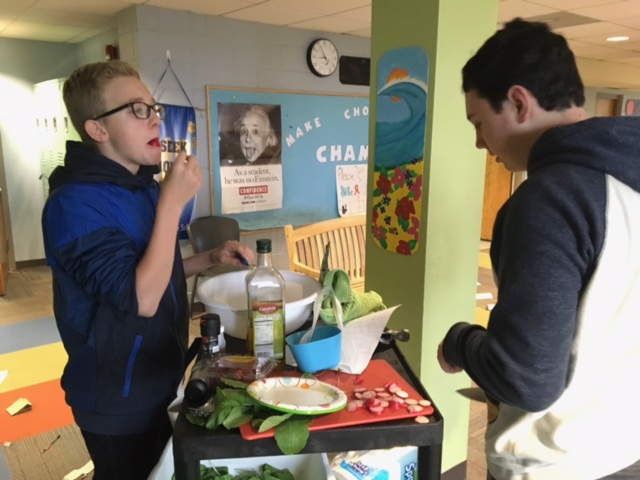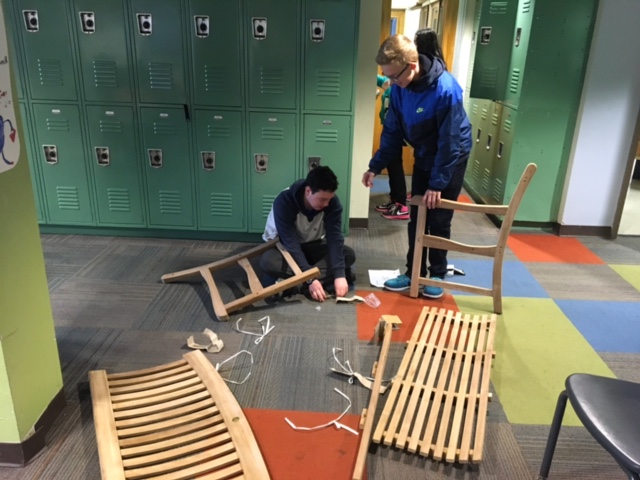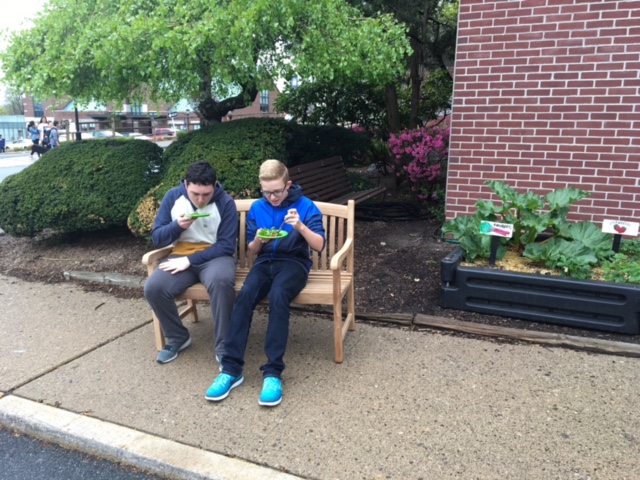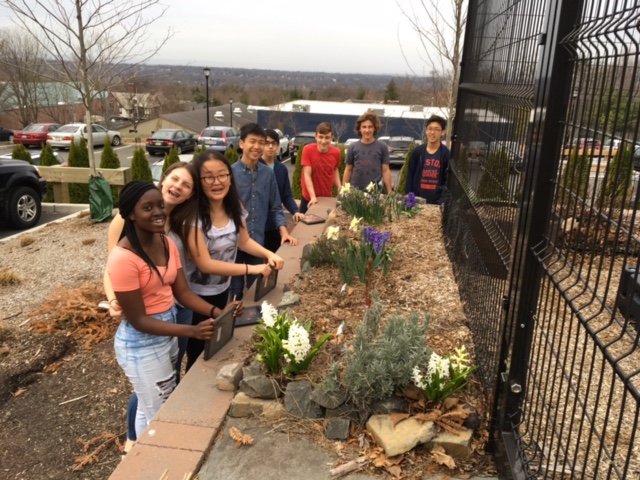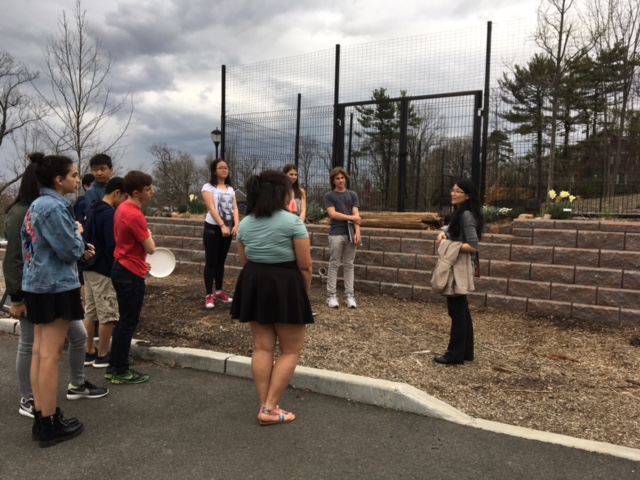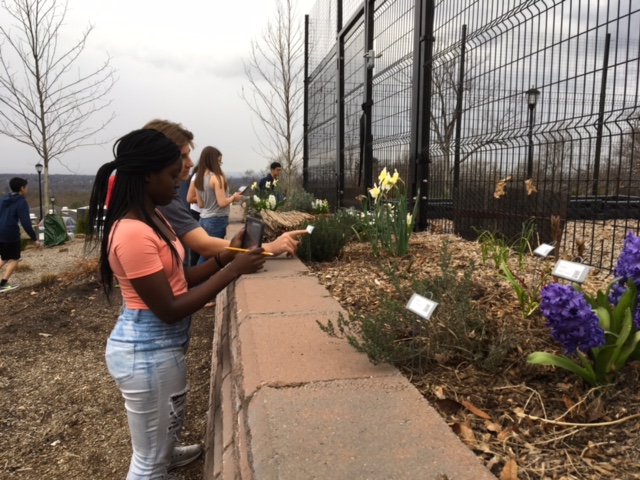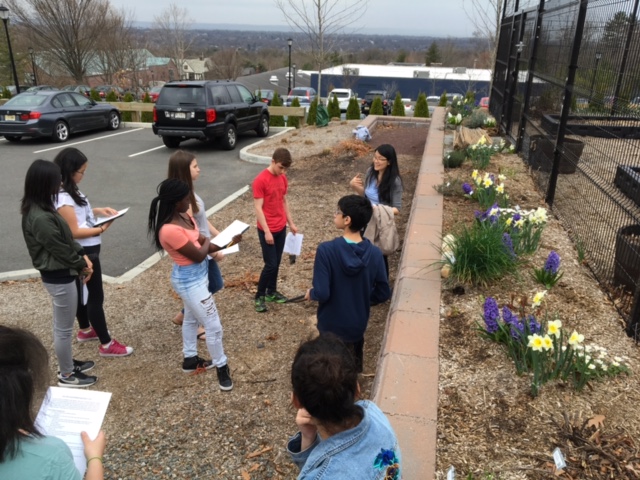6th Grade: With May’s arrival, our 6th graders are working on their last curricular units. In Science, students have started to work on their Experimental Design projects. They will be testing consumer products and seeing what brand is the most reliable based on their research and cost. They will present their findings at the Experimental Design Fair on May 24th in Hajjar Auditorium in the Klein Campus Center, from 12:30 – 2:00 PM. We hope to see you there!
In Math, students are studying pie charts and graphs and their relationships with percentages, and they have just started a unit on volume. In Advanced Math, students investigated the relationship between circumference and pi, and how that connects to the area of a circle. In Hyper Math, the students finished their PBL about pendulums. They measured the periods of three pendulums of unknown lengths, and having already developed an algebraic equation relating the period of a pendulum and the length of a pendulum, they will use that equation to determine the unknown lengths. The final idea in this PBL is that of relative error, the use of which tell them how accurate their measuring has been.
In Social Studies, they students are writing and editing their first essay on bronze age Greek cultures and preparing for a trip to the MET on Friday to study and sketch Greek art over time. They will then turn their attention to Athens and Sparta by comparing different kinds of ancient Greek governments. The unit will conclude with our grade-wide celebration of Greek Day in June!
In English, in addition to wrapping up a unit on run-ons, fragments, and apostrophes, the students are finishing reading Lions of Little Rock this week, and they will be developing original thesis statements about their themes for their second analytical essay, starting next week.
We look forward to seeing parents during Experimental Design presentations and Greek Day in the coming weeks.
7th Grade: Our 7th graders have begun their journey through our latest project, investigating green technologies. In Science, students will be researching the impacts that these technologies will make on our planet. In tandem with this work, in Math, all students will be calculating how much energy is reduced, the cost efficiency and, comparing the new versus the old life time costs. Math 7 has just finished the Algebra Unit with equations and the slope intercept form. They have also started working on ratios, proportions and rates. In Advanced Math, students are currently learning what a linear function looks like. Our 7th grade Hyper Math students are continuing to learn about quadratic functions and how to apply them in real world situations. These topics will be quite handy for the green technology PBL.
Our 7’s also traveled over to Flat Rock Brook Nature Center last week, for their class service-learning trip. They were put to work, pulling up the garlic mustard weed invasive species. The grade was split up into 4 groups to conquer different areas along the trail.
8th Grade: Spring is here and the 8th graders are working diligently to finish the year strong. In Math, they are continuing their study of polynomials and beginning to learn how to factor. In History, we are transitioning from our unit on the Holocaust to our Civil Rights curriculum. Students will use their understanding of human behavior and apply those lessons on how the Civil Rights movement unfolded. In English, students continue to explore Shakespeare’s masterpiece Romeo and Juliet and they are reflecting on the writing process in their Portfolio projects. In Science, students are working on the Sci-Tube projects and getting their videos ready for peer editing.
8th graders in D.I.G. (D-E in the Garden) made benches for the Umpleby
garden and harvest salad greens started in cold frames. The rewards of
labor and collaboration were a seated savory moment by Umpleby Garden.
And finally our 8’s who study Latin recently enjoyed a window into an ancient world: Ms. So explained to her class how archeologists discovered plants important in ancient Pompeii. Some of these plants are still in cultivation — in our own D-E garden.
Latin students will research and propagate these plants to learn more
about how they were important to Roman culture and remain relevant
today. Many of these plants are herbs and/or flowers, inviting tasting and smelling as
well as observation.

